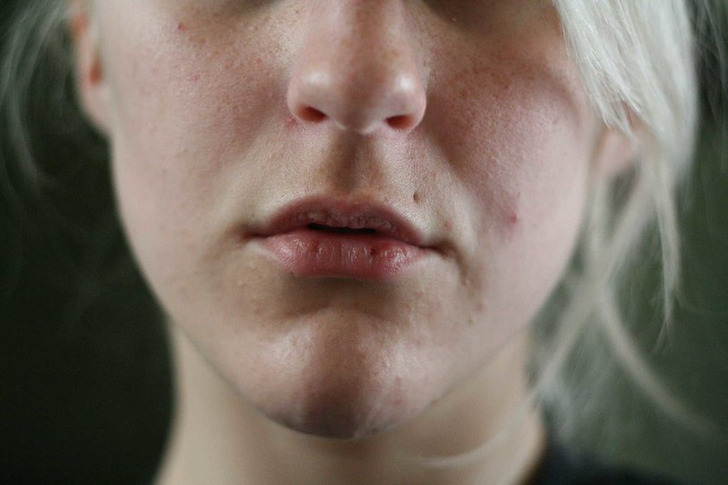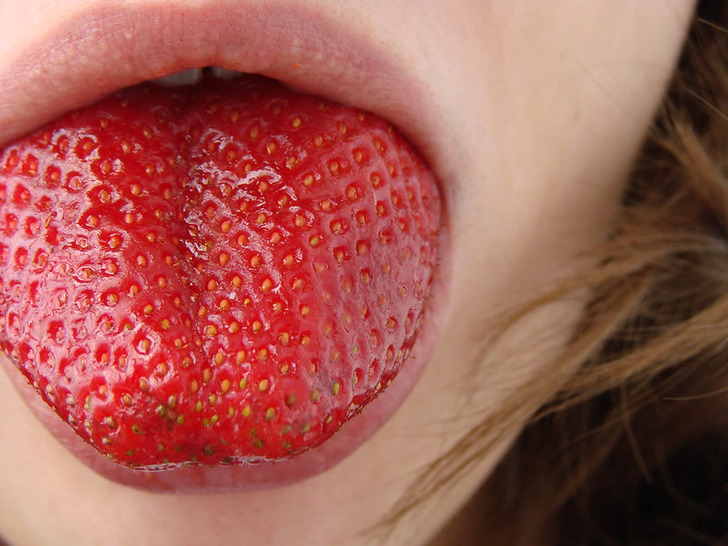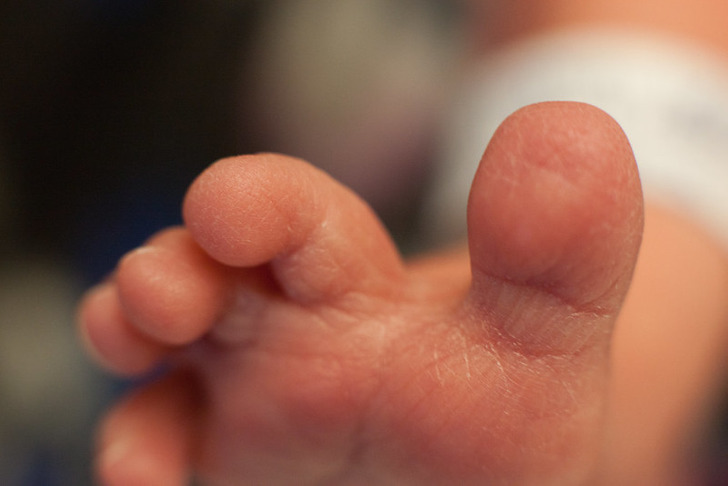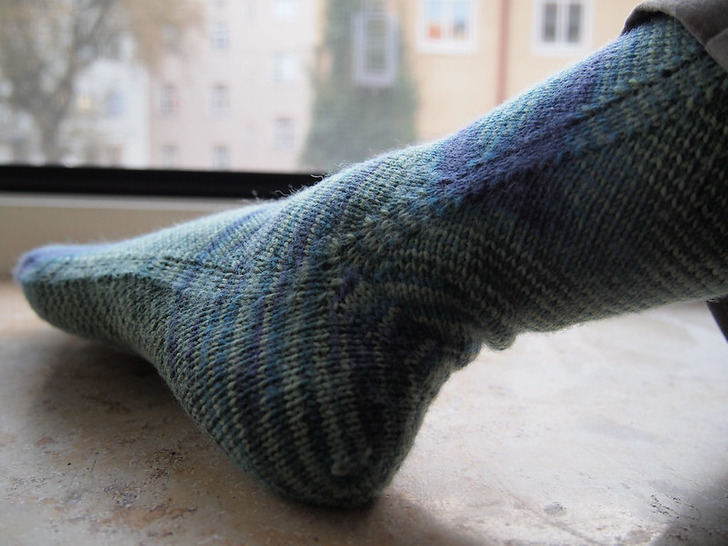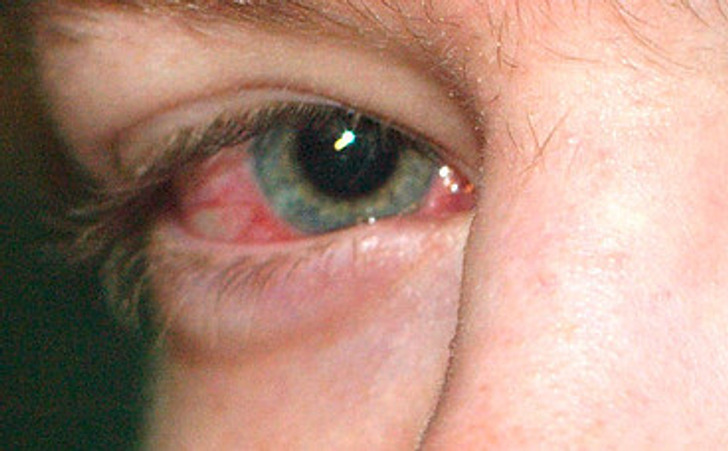14 Ways Our Body Can Tell Us That Something Is Wrong
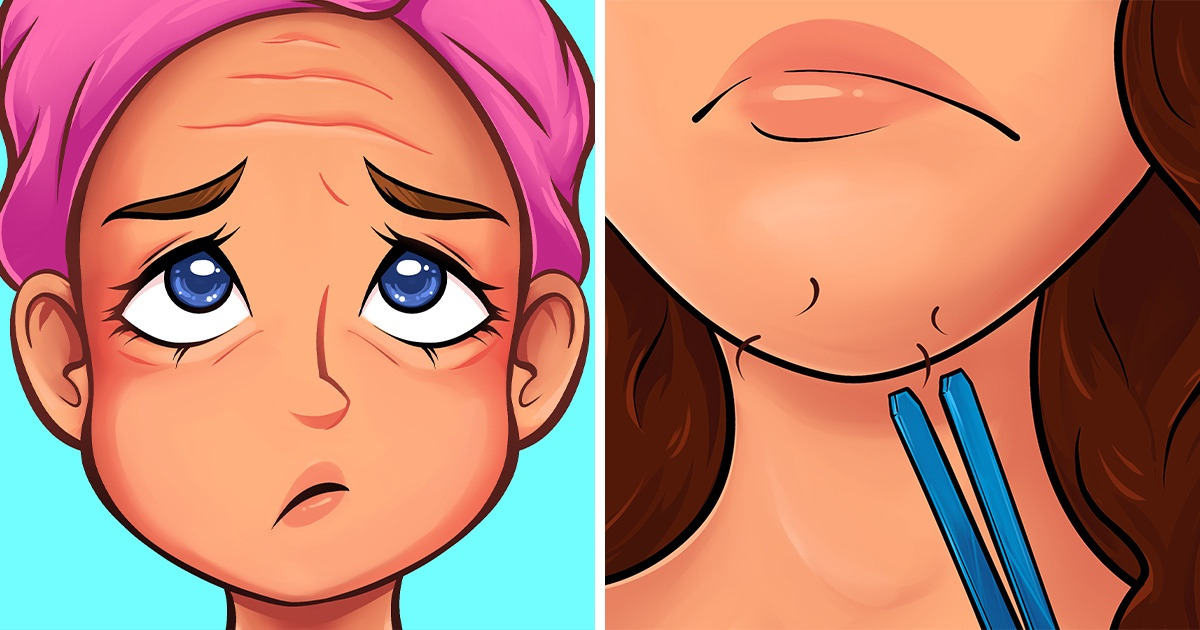
Our bodies are constantly telling us about our condition. Sometimes, they give us simple hints, for example, when it’s time to eat or sleep. In other situations, the signals are like an alarm — fever, pain, or a rash. But there are moments when it seems that nothing special is going on because signs like mouth dryness or cracking skin on the heels are unpleasant but normal. And we might not even know that they might be indicators of serious health conditions, and maybe it’s time to see a doctor.
Deep forehead wrinkles
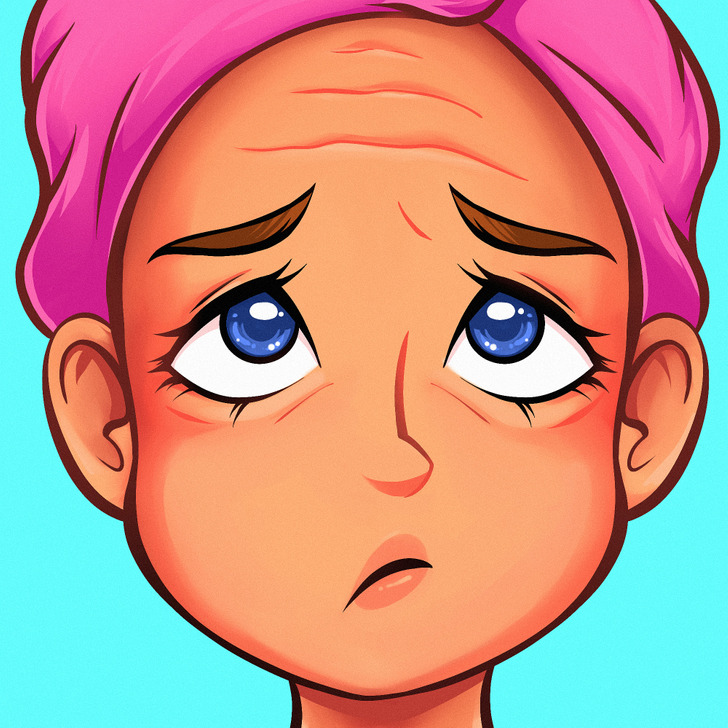
Wrinkles can be caused by multiple different factors, including genes, natural age-related changes in the skin, and too much UV-light exposure. But, according to a recent study, if a person has such wrinkles on the forehead at a young age, it might indicate a high risk of atherosclerosis.
Snoring

Many people snore from time to time, and it’s okay. But if you snore too loudly or for a very long time and it becomes a chronic issue, it may be a sign of a serious condition called obstructive sleep apnea (OSA).
It’s worrying if you wake up with a headache, sore throat, high blood pressure, or have trouble concentrating and can’t sleep well.
Cracked lips
Cracked lips are normal when it’s cold. But they can also be the first sign of dehydration, or they may appear when people lick their lips often. Such a habit can lead to dermatitis, which is hard to beat.
Furthermore, cracked lips might indicate vitamin deficiency, thyroid problems, allergies, and certain autoimmune disorders.
Slowly growing toenails
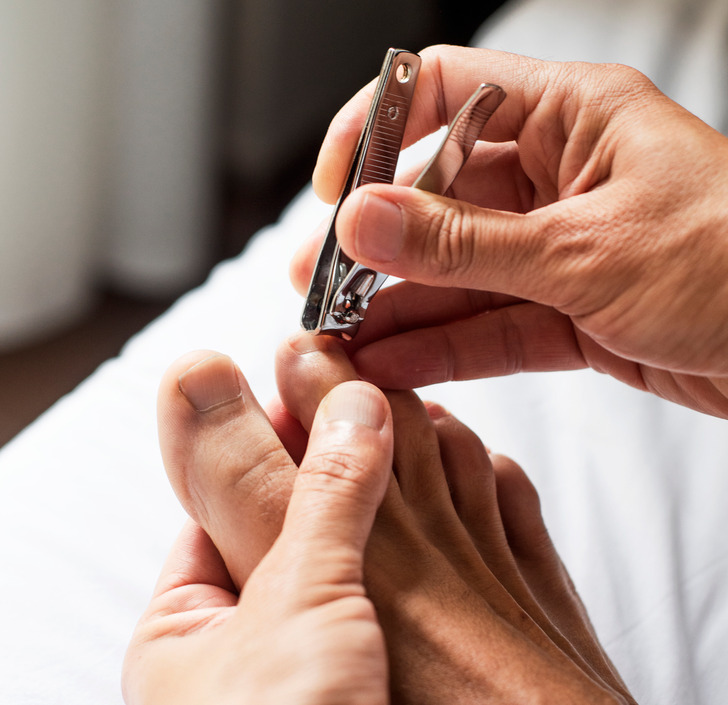
If you can’t remember the last time you cut your toenails because they grow very slowly, it’s not a good sign, especially if the hair on your legs doesn’t grow very fast and wounds take a very long time to heal. These are signs of peripheral artery disease. The blood flow can’t reach the lower part of the body, so the skin and hair don’t get enough nutrients.
Eyebrows becoming thinner and thinner
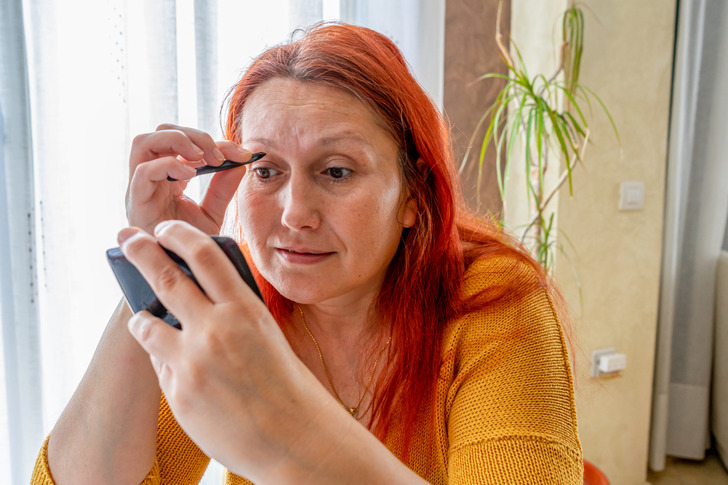
Hair loss, including the hair of the eyebrows, can be a sign that the metabolism is disrupted due to thyroid issues. Other worrying symptoms are fatigue, weight gain or loss, and brain fog. All you need in this situation is a blood test to confirm the diagnosis.
Constant skin itch
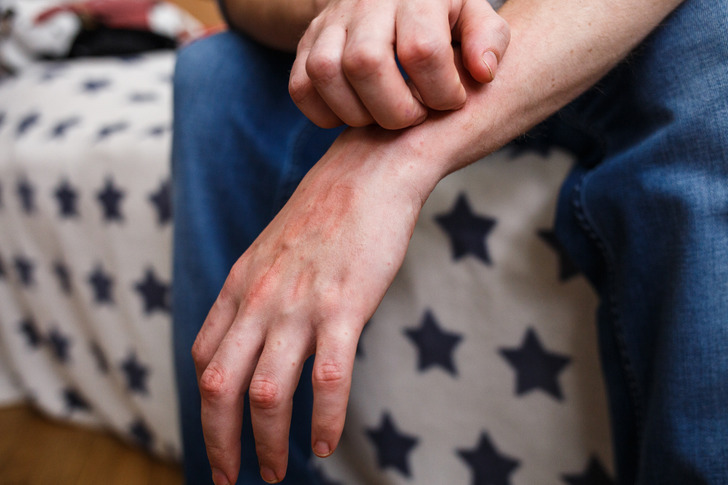
A slight itch from time to time is not something we should worry about. But a recurring itch without a rash or other obvious skin problems can be a liver disease symptom. Such an itch gets worse in the evening. Some people have an itch in a certain body part, for example, heels or palms, while others feel it around the whole body.
Red or white tongue
Normally, a human tongue is pink. But some disorders change the tongue color. For example, deficiencies of folic acid and vitamin B-12 may cause your tongue to take a reddish appearance. Red or strawberry tongue is one of the symptoms of scarlet fever.
Oral thrush can make the tongue white due to a yeast infection. But also, a white tongue may be a sign of hypothyroidism, or that mouth hygiene should be improved.
Height loss

If you have pieces of clothes that used to fit you and now they seem longer, check your height. If you’ve lost 1,5-2 inches and you’re older than 20, you might have osteoporosis. It often has no symptoms, and the first sign is bone fractures without any injuries. These problems can be avoided if you see a doctor in the early stages.
Big toe swelling
If you notice your big toe swelling for no apparent reason, it might be an early sign of gout. Without treatment, it’s not only painful but can also lead to kidney problems.
Feet always cold
When we feel cold, our hands and legs are the first to tell us about it. But if you are in a warm environment and your legs are still cold, this might be a sign of a cardiovascular problem, anemia, or fibromyalgia. Even when you notice it only from time to time, you should discuss it with your doctor or make sure it’s temporary and not a sign of an illness.
Hard hairs on the chin
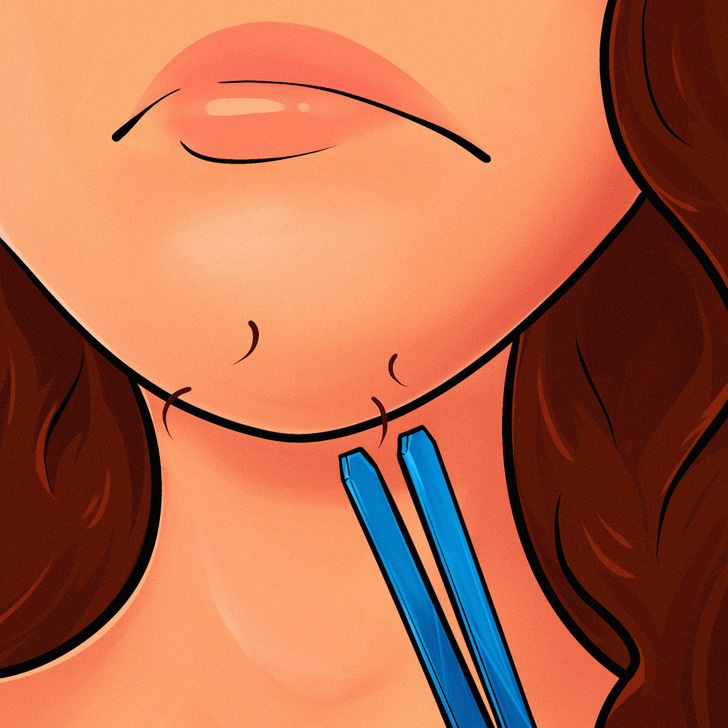
When women have hard, thick, dark hairs on the chin, it might be due to genes, age changes, polycystic ovary syndrome, adrenal gland problems, and hormonal imbalance.
With age, especially after menopause, it’s normal for such hairs to appear, but you should still consult a doctor if you have too many of them.
Red eyes
Our eyes are often red when we cry, don’t sleep enough, work too much, or get sick. Also, dirty or dry air and allergens can make our eyes red. But if your eyes are red for more than a week for no apparent reason, it’s better to see a doctor to make sure it’s not scleritis, glaucoma, or a corneal ulcer.
Mouth dryness
When you’re dehydrated or stressed, it’s normal to have mouth dryness. Some medications, nasal congestion, and diabetes can make your mouth dry. There’s also the Sjögren syndrome, an autoimmune disease that affects the salivary glands.
Cracked heels
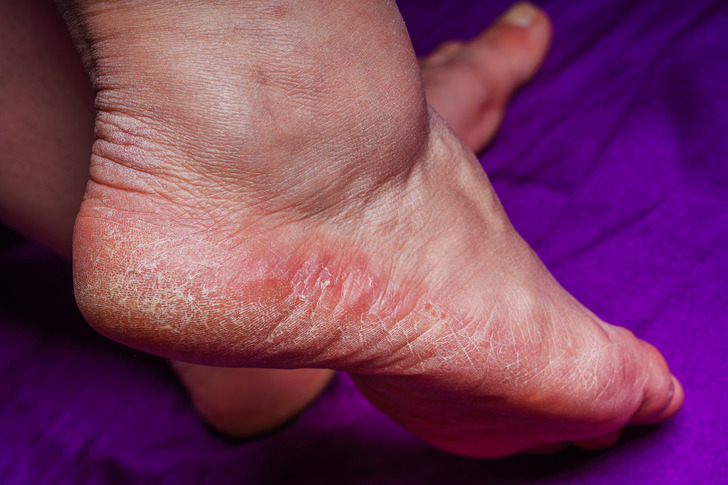
In winter, our skin is often dry. Our heels take the worst toll, and we think it’s normal. But cracked heels may indicate serious health issues, such as diabetes, hypothyroidism, and eczema.
In your opinion, which simple symptoms should not be ignored?
